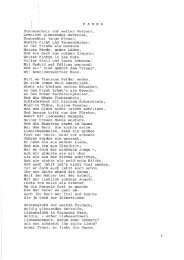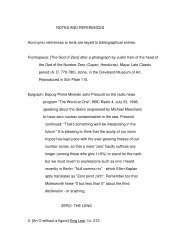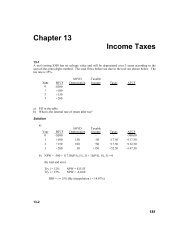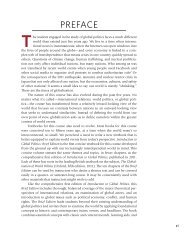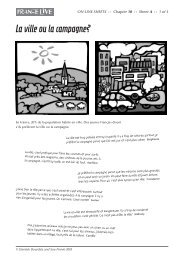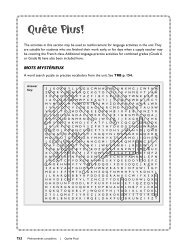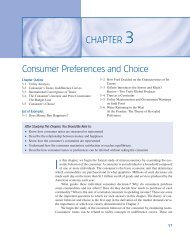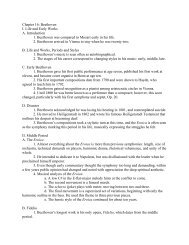1 Political authority and obligation Political authority and obligation
1 Political authority and obligation Political authority and obligation
1 Political authority and obligation Political authority and obligation
You also want an ePaper? Increase the reach of your titles
YUMPU automatically turns print PDFs into web optimized ePapers that Google loves.
KEY POINTS<br />
Anarchy<br />
<strong>Political</strong> <strong>authority</strong> <strong>and</strong> <strong>obligation</strong> 23<br />
● Many laws tell us to do that which the basic rules of morality dem<strong>and</strong> that we do anyway, independently<br />
of the law.<br />
● States may legitimately enforce obedience to the basic rules of morality. Most theorists agree<br />
that all existing states enforce at least some laws that go beyond the basic rules of morality.<br />
● Nozick <strong>and</strong> other libertarians argue that states may enforce only property rights <strong>and</strong> rights<br />
against harm. Nozick calls a state that performs only these functions a ‘minimal state’.<br />
● Nozick argues that states are permitted uniquely to enforce morality by appealing to the risk<br />
involved in enforcing rights.<br />
● Raz argues that the normal way in which to show that an <strong>authority</strong> is justifi ed is to show that,<br />
by following the directives of the <strong>authority</strong>, people would better comply with reasons applicable<br />
to them than if they were to try to follow those reasons directly. Raz notes that the <strong>authority</strong><br />
that existing states claim for themselves would not be entirely justifi ed on this view.<br />
BOX 1.3 PROUDHON: AN ANARCHIST VIEW OF THE STATE<br />
To be GOVERNED is to be kept in sight, inspected, spied upon, directed, law-driven, numbered,<br />
enrolled, indoctrinated, preached at, controlled, estimated, valued, censured, comm<strong>and</strong>ed, by<br />
creatures who have neither the right, nor the wisdom, nor the virtue to do so … To be GOV-<br />
ERNED is to be at every operation, at every transaction, noted, registered, enrolled, taxed,<br />
stamped, measured, numbered, assessed, licensed, authorized, admonished, forbidden,<br />
reformed, corrected, punished. It is, under the pretext of public utility, <strong>and</strong> in the name of the<br />
general interest, to be placed under contribution, trained, ransomed, exploited, monopolized,<br />
extorted, squeezed, mystified, robbed; then, at the slightest resistance, the first word of complaint,<br />
to be repressed, fined, despised, harassed, tracked, abused, clubbed, disarmed, choked,<br />
imprisoned, judged, condemned, shot, deported, sacrificed, sold, betrayed; <strong>and</strong>, to crown all,<br />
mocked, ridiculed, outraged, dishonored. That is government; that is its justice; that is its morality.<br />
(Proudhon, 1851; 1923: 293–4)<br />
Some thinkers who do not accept any of the arguments canvassed above argue instead that<br />
we are not bound by a duty to obey the law. Such thinkers do no necessarily think that we<br />
should abolish the state, because some accept that there are good prudential reasons to<br />
maintain the current order—at least for the time being. Th is position—anarchy in theory,<br />
but not in practice—is known as philosophical anarchism <strong>and</strong> was fi rst proposed by William<br />
Godwin (1793; 1976). Of the positive arguments for philosophical anarchism—those<br />
built on reasons not to obey the law, rather than merely the absence of reasons to obey<br />
it—the most widely discussed in recent times has been the claim of R. P. Wolff (1970) that



